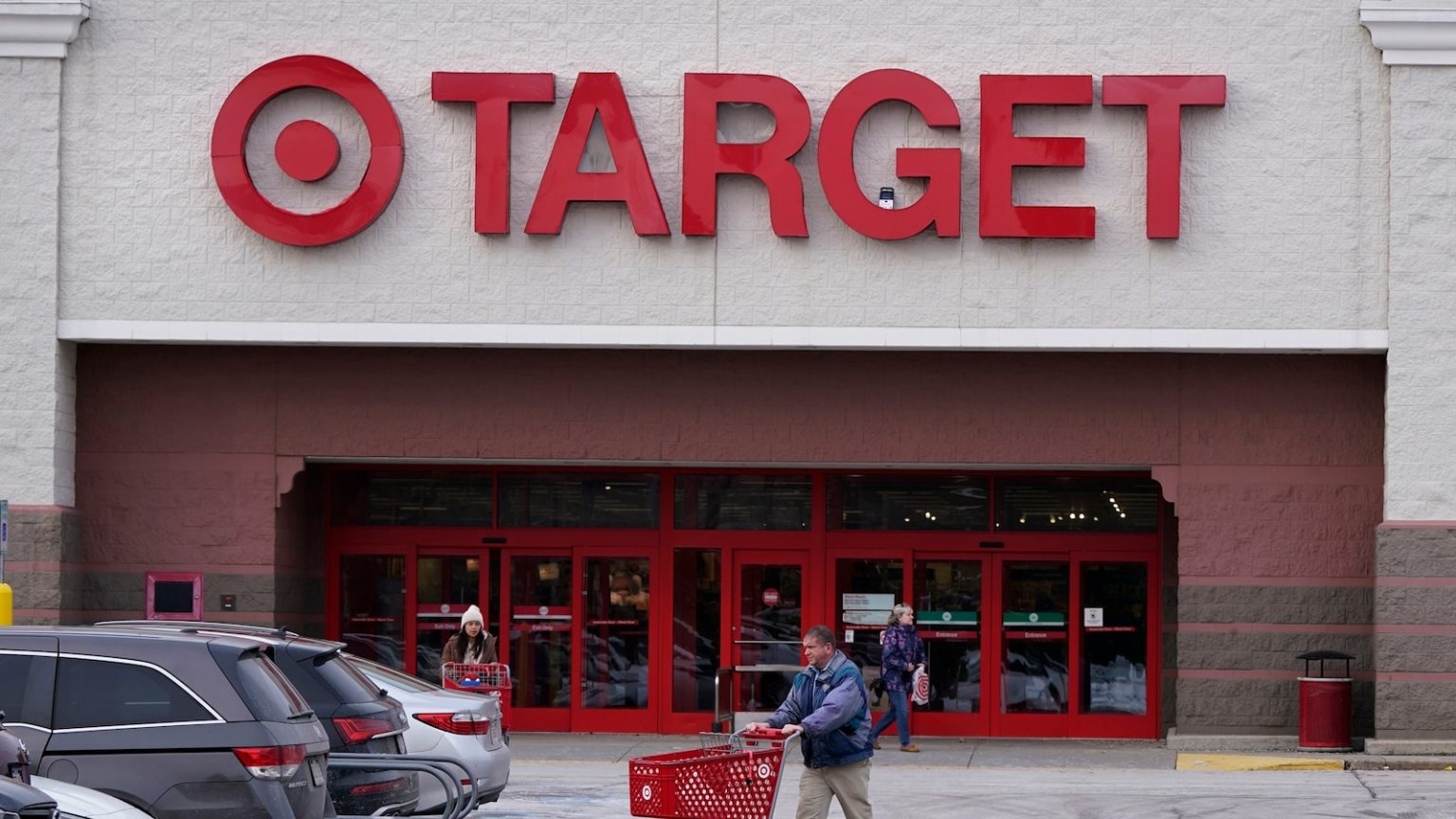Target CEO Brian Cornell on Wednesday warned of “massive potential costs” due to tariffs, saying the company would raise prices as a “very last resort.”
“The difficulty level has been incredibly high given the rates we’re facing and the uncertainty about how these rates in different categories might evolve,” Cornell said. “We’re focused on supporting American families and how they manage their budgets.”
The retail giant marked the latest major company warning of possible tariff-driven price hikes, following similar warnings from Walmart and Best Buy.
Target reported a drop in sales over its most recent quarter, faulting consumer jitters over tariffs as well as a boycott over a rollback of its diversity, equity and inclusion policy.
People exit a Target store on Black Friday in Brooklyn, New York, Nov. 29, 2024.
Brendan Mcdermid/Reuters
Sales declined 2.8% over the first three months of 2025 compared to the same period last year, the company said. That performance fell short of what analysts expected.
“In the first quarter, our team and our business faced an exceptionally challenging environment,” Cornell said.
Consumer attitudes soured in May for the fourth consecutive month, dropping to the second-lowest level ever recorded, a University of Michigan survey showed.
The pullback in shopper sentiment owes in part to inflation fears and recession warnings set off by President Donald Trump’s initial rollout of levies.
Speaking to analysts on Wednesday, Cornell lamented the decline in consumer confidence as well as “uncertainty regarding the potential consumer impact of tariffs.”
A trade agreement between the U.S. and China this week slashed tit-for-tat tariffs between the world’s two largest economies and triggered a surge in the stock market.
The U.S.-China agreement marked the latest softening of Trump’s levies, coming weeks after the White House paused far-reaching “reciprocal tariffs” on dozens of countries.
Still, an array of tariffs remain in place, including an across-the-board 10% levy that applies to imports from nearly all countries. Additional tariffs have hit auto parts, as well as steel and aluminum.
Cornell said the company may face adverse conditions for the foreseeable future. The company forecasted another drop in sales over the next three-month period.
“We believe it’s prudent to assume top-line pressures will continue in the near term,” Cornell said.
This is a developing story. Please check back for updates.
